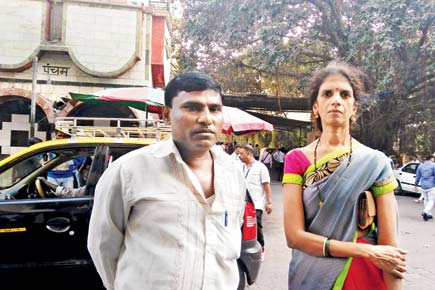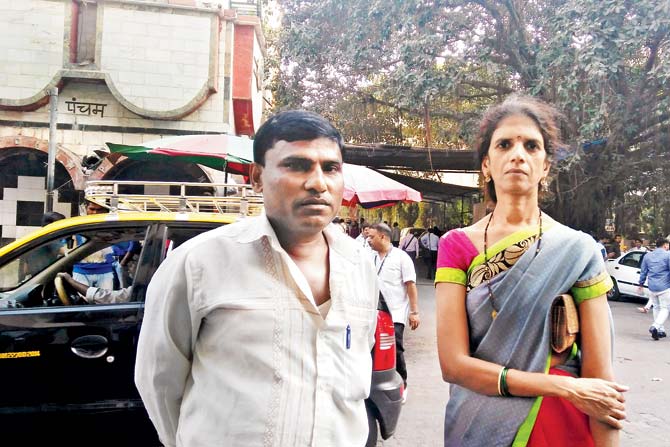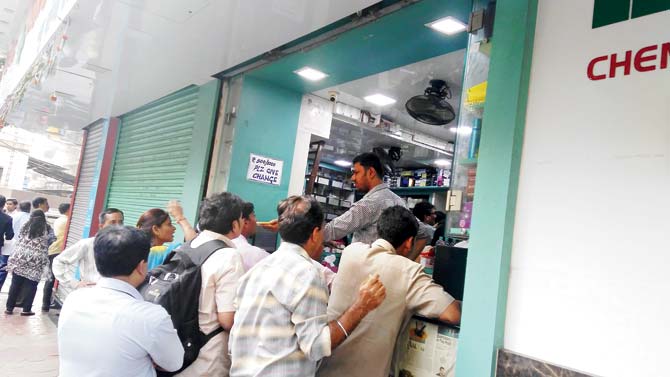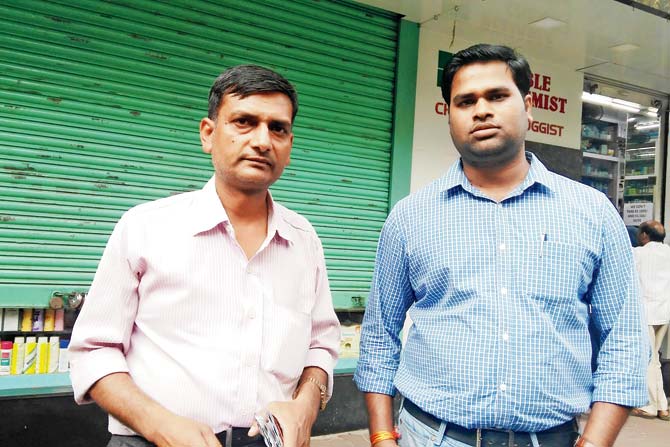From a 70-year-old woman to an eight-year-old girl, patients and their families at Mumbai hospitals are reeling under the cash crisis

Private Mumbai hospitals refuse to accept old currency
 Rekha Arao and her husband
Rekha Arao and her husband
ADVERTISEMENT
Ulhasnagar resident Rekha Arao is another victim of the demonetisation and it’s after-effects in medical institutions. Although the government has ordered a 72-hour relaxation for use of old denomination notes in hospitals, Rekha’s hopes to bring her mother home on Wednesday was crushed by to Bombay Hospital authorities who refused to discharge the 70-year-old until Rekha paid for the treatment in Rs 100 denominations or through card.
Rekha said, “My mother was diagnosed with swollen kidney so we admitted her last week. She was supposed to be discharged yesterday, but the hospital refused to accept the bill amount of R50,000 in denominations of R500 and R1000. They said we have to pay in R100 denominations or through card, but we don’t have either!”
 A rush at medical shops near BombayHospital
A rush at medical shops near BombayHospital
Child suffers the brunt
In another incident, Osama Sheikh, a man in his late 20s, had to run from pillar to post yesterday to procure medicines for his 8-year-old niece, Shaikh Zoya Aslam. Zoya is undergoing treatment for typhoid at Noor Hospital. Sheikh said, “I have been running from one pharmacy to another because none of them are willing to give me medicines against R1,000 notes.”
Cutting down on medicines
Luck favoured Madhya Pradesh resident Nitin Tiwari who managed to buy medicines using the now invalid currency notes.
“I came to Bombay Hospital for treatment and I was billed R1,200. But because the pharmacy was short on R100 notes, they asked me to buy medicines worth R1,000. At least, they accepted my R1,000 note.”

Actions against pvt hospitals
The state health minister has announced that if private hospitals refuse to accept the notes, the department will take steps against them. “No private hospital can refuse to accept R500 and R1,000. If we receive any complaints, we will take steps against them,” said Dr Deepak Sawant.
 Subscribe today by clicking the link and stay updated with the latest news!" Click here!
Subscribe today by clicking the link and stay updated with the latest news!" Click here!






